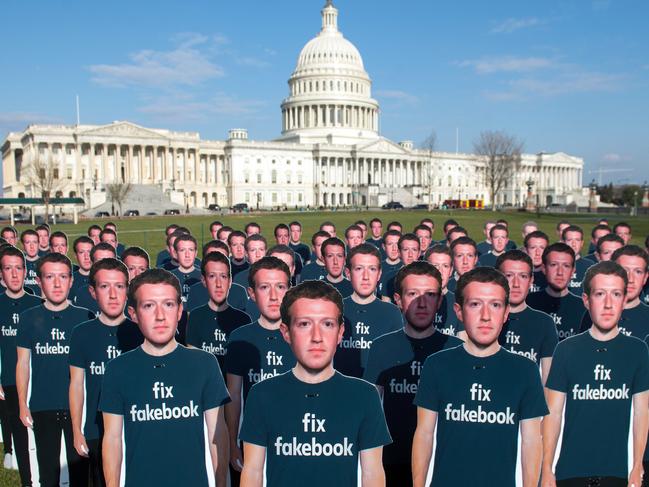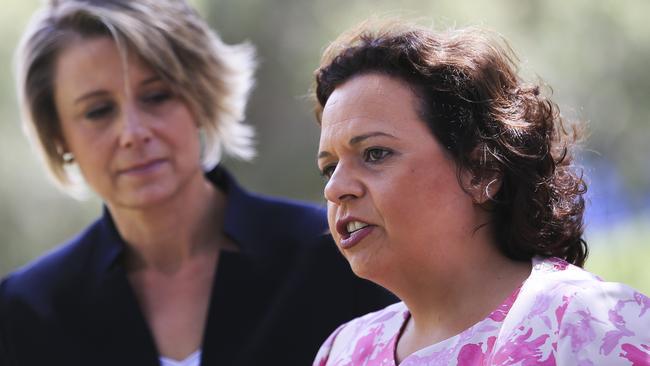ASIO meets with Facebook and Google over upcoming election
Facebook and Google have been called to Canberra for urgent meetings with the nation’s top spy agency ahead of the federal election.
Exclusive: Facebook and Google have been called to Canberra for urgent meetings with the nation’s top spy agency on how to deal with foreign interference and tackle fake news during the upcoming federal election campaign.
News Corp Australia has confirmed the social media and tech giants met with officials from the Australian Security Intelligence Organisation over the past two weeks to discuss the looming federal poll.
The organisations also met with the Department of Home Affairs, the Department of Prime Minister and Cabinet and the Australian Electoral Commission among others.
RELATED: Cyber safety for kids top election priority for Coalition
RELATED: When parents should be talking to their kids about porn
The government was interested to know how best to deal with any foreign interference during the election cycle, particularly following a cyber attack on parliament’s computer network last week.
China was suspected to have been behind the attack.
Google was understood to be proactively in Canberra offering training to government agencies.
Twitter said it had met with all the major parties, but not ASIO.
Twitter representatives also briefed parliamentarians offices from both Labor and the Coalition this week on Twitter’s plan for the upcoming election including the development of a handbook on how to best use the platform during the election cycle.

It follows speculation Facebook may set up a “war room” to deal with fake news and foreign interference similar to what it did in the US during last year’s November midterms.
ASIO would not comment when approached by News Corp Australia today.
The Department of Home Affairs and Home Affairs Minister Peter Dutton also went to ground, with Mr Dutton’s office refusing to answer calls.
The Australian Electoral Commission said it regularly met with representatives from the social media platforms, but that it was aware meetings had recently occurred with other agencies.
“We are aware of meetings with social media companies occurring across a number of agencies,” assistant director of media at the AEC, Evan Ekin-Smyth said.
“Electoral integrity and security is a specific area of focus and a range of security measures will be implemented for the 2019 federal election.”

A Facebook spokesman said they regularly had meetings with government to brief them on updates or special projects for the platform but would not confirm or deny the meetings with ASIO.
Labor’s communications spokeswoman Michelle Rowland urged social media companies to take strong action to retain the integrity of the upcoming election.
“Labor acknowledges the focus major digital platforms have had in addressing fake news and we urge them to redouble their efforts to combat misinformation around elections,” Ms Rowland said.
Deputy director of Deakin University’s Cyber Security Research Centre Matthew Warren said fake news and foreign interference was one of the biggest issues leading into the election campaign and urged the government to fund a public awareness campaign on the issue.
“Once people are aware of how to spot it and start to question the sources of their information fake news loses its power,” Professor Warren said.

During the 2016 US election, Russia was accused of employing a variety of tactics to sway the election result, particularly using social media.
The foreign power set up hundreds of fake social media accounts to promote Donald Trump and ridicule Hillary Clinton and spread distrust in the political system in general.
“Fake news” stories were also promoted on social media platforms, with many saying the interference led to Donald Trump’s victory.
A 2018 digital news report by the University of Canberra found one in four Australians had already experienced fake news online and 67 per cent were concerned about it.
News of the meetings between the tech giants and ASIO comes after Scott Morrison faced a horror first sitting week in parliament, losing a key vote on the floor of the House of Representatives relating to the transfer of asylum seekers from Nauru and Manus Island to Australia for medical treatment.
It was the first time since 1941 the sitting government lost a vote on the floor of the parliament and prompted calls for the Coalition to go to an early election.
However, Mr Morrison remained steadfast the election would be in May, following a budget in April.


